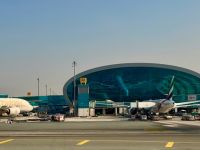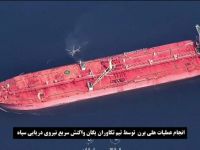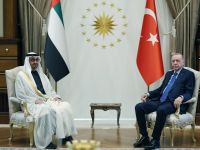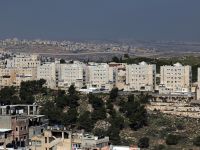Last weekend marked one of the most grisly chapters of political violence in Algeria’s recent history. Twelve people, including five members of the same family, were murdered. The throats of three children and their parents were sliced on Saturday when they ambushed their home in Draa Smar, 70 kilometers south of the capital, Algiers.
In response, government troops killed five guerillas in a gun battle on Sunday, when they attacked a rebel hideout in the Saida Mountains. Twenty other members of the “Appeal and Struggle” radical faction fled to a nearby forest for refuge.
Violent incidents are nothing new in Algeria. What makes the latest round increasingly troubling is the fact that it has been accompanied by distrustful economic signals, a disturbing mixture for this Arab state. A recent report by Algeria’s National Economic and Social Council revealed that the value of the public sector’s industrial output had contracted by 1.5 percent in 1999 versus 10.5 percent growth in the previous year. Additionally, the country’s Agriculture Minister has warned that 80 percent of this nation’s cereal production is likely to be lost this year due to prevailing drought conditions. Such an occurrence would represent a financial cost of AD33 billion (roughly $430 million).
Algeria’s woes extend to the financial sector. The National Bank of Algeria (BNA) now finds itself in dire straights due to the treasury deficit it has accrued. BNA’s problems stem from difficulties in recovering debts from customers, mainly from government-owned companies that have been liquidated. On a macro level, the cost of servicing Algeria’s debt absorbs roughly 40 percent of export revenues.
On a more positive note, help may be on the way from the United States. The American administration has committed to support Algeria’s Paris Club request to convert part of its debt into acquisition of state-owned enterprises. Furthermore, Eximbank, the U.S. export credit bank, will lend Algeria between $700 million and $1.2 billion to finance a planned energy project by state-owned Sonatrach and the purchase of Boeing aircraft by state-owned Air Algerie.
Thousands of people have been killed since violence first shook Algeria in 1992. The damage of earlier brutal acts was mitigated by news that another multinational was planning to enter the Algerian market, in spite of the country’s precarious security situation. Recent indications of economic tribulations, however, combined with continuing bloodshed threaten to deter foreign investors. The social repercussions could be harsh: Algeria, which faces 30 percent unemployment, desperately depends on foreign capital to create jobs for its rapidly expanding workforce.
- Albawaba Middle East Business







